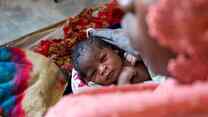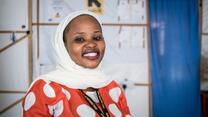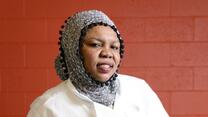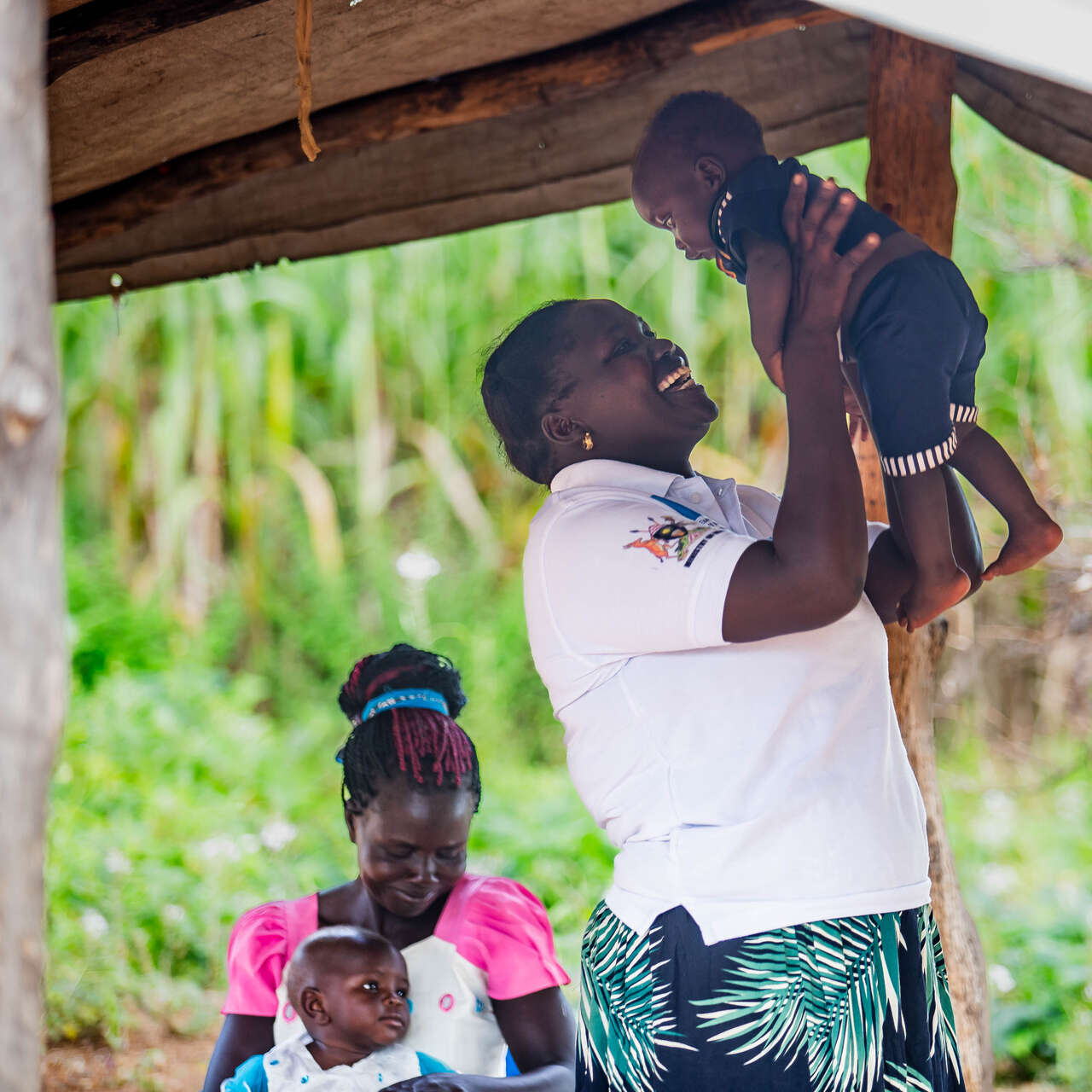
Poni Rukia, a 38-year-old widow, is one of 1.7 million refugees residing in Uganda and working to rebuild their lives after fleeing brutal conflicts in places like South Sudan, the DRC and Sudan. After experiencing unimaginable tragedy that drove her from her family and home, she has found strength and purpose in community health work.
In 2017, as war descended on her peaceful South Sudan village, the home Poni shared with her husband was invaded by unknown gunmen. In the chaos that ensued, her husband was shot and killed, and Poni “endured a different kind of horror” as she was violently assaulted, left unconscious and helpless until members of her community found her the next day.
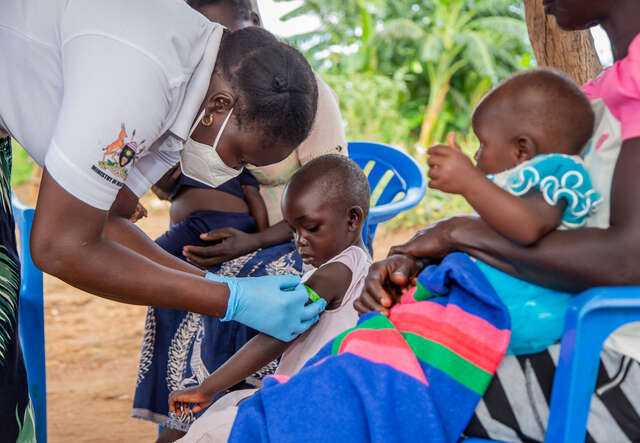
“I was carried across the border, to a clinic, which deemed my case beyond their capacity,” Poni said, recalling the days after the attack. Poni was eventually transferred to the Koboko Health Center IV in West Nile, Uganda, where she spent weeks recovering from the physical and emotional trauma. Her condition prevented her from being able to attend her husband’s burial, but even after she’d recovered, Poni’s sister-in-law told her that it wasn’t safe for her to return to her village.
Unable to go home, Poni sought shelter in the settlement where she currently resides, “seeking refuge from the haunting memories of an unimaginable tragedy.” But soon after arriving at the settlement, Poni’s journey took an unexpected and meaningful turn.
“One day when the International Rescue Committee (IRC) had come for a community dialogue, they asked for anyone who could interpret English to the local language. I volunteered to do so because I knew English. Then next time they came back, they were looking for volunteers to serve as Village Health Team members.”
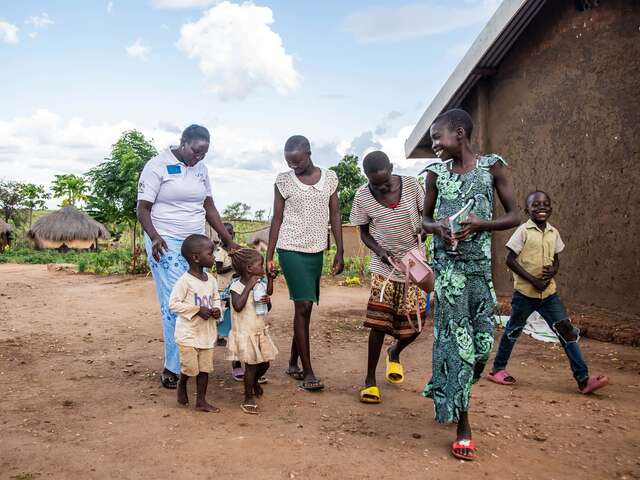
The role of a Village Health Team (VHT) is to link the community to the health center and its resources, to provide basic information and care. Community members immediately nominated Poni for the team, and she took on the role with purpose and pride.
Poni sees herself as a “mobilizer” in the community, responsible for ensuring the community's participation in health-related activities and access to health care resources. She engages people at communal spots like churches and schools, but also performs door-to-door home visits to understand the living conditions of her neighbors, identify illnesses, and provide treatment or referrals when needed — like making sure children get their vaccinations on time.
“The training and support from the IRC have helped me a lot, equipping me with knowledge of treating malaria and motivating me to fulfill my role effectively,” Poni said about the International Rescue Committee (IRC) health program.
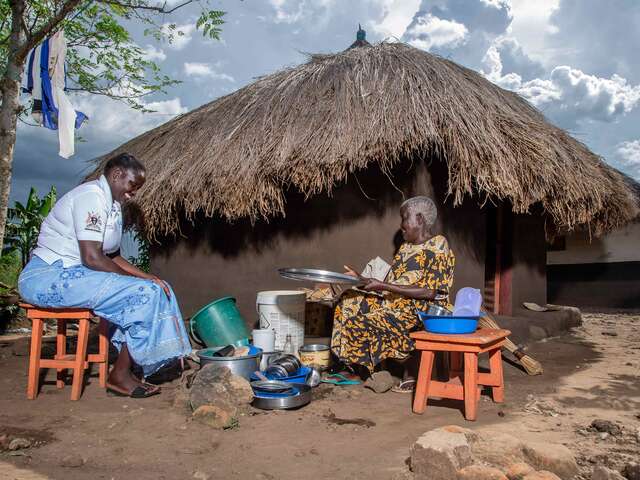
The IRC works with community-based health structures like Poni’s VHT to help provide basic health services, support in disease surveillance, report outbreaks, and refer community members that need further support to their closest health facilities.
“In terms of the impact I see on ground, the community's health has improved significantly, and I take pride in the fact that since becoming a VHT, we haven't experienced any maternal deaths due to home deliveries in my village,” Poni said.
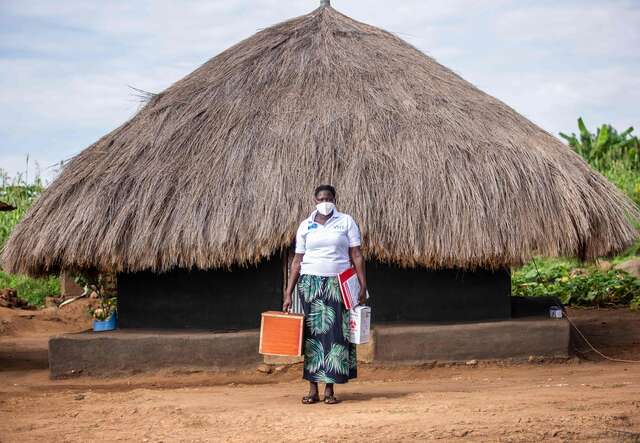
Poni’s story is an inspiration. When faced with adversity, she chose perseverance — and has found purpose and empowerment in helping others. With support from the IRC and vital funding from the EU, VHTs — and their dedicated volunteers like Poni — play a significant role in strengthening health systems within vulnerable communities. However, despite improvements in health indicators, maternal and child health issues persist. Diseases such as AIDS, tuberculosis, and malaria are a leading causes of death in Uganda and have been exacerbated by a high demand on Uganda’s overburdened health care system. The continued support of the EU is crucial to ensure that, alongside committed healthcare workers like Poni, we can address the needs of refugees, asylum seekers and host communities in Uganda, ultimately saving lives in more ways than one.
“Being a VHT has not only given me purpose but also allowed me to contribute to the well-being of my people. Saving lives, preventing home deliveries, and ensuring a healthy community — these are the reasons why I am proud to be a VHT.”
The International Rescue Committee partners with the European Union to provide life-saving support to people caught in conflict and disasters around the world. Our work funded by the EU enables people to survive, recover and rebuild their lives.

